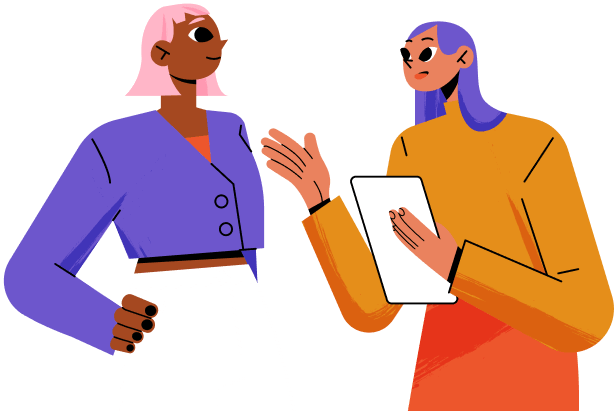Where are we as a society?
Learn how people think and talk about racial equity and justice.
Jump to sectionDespite ongoing national conversations, people still lack a clear and consistent understanding of what racial equity and racial justice mean.
Learn how people think and talk about racial equity and justice.
Jump to sectionExplore common mindsets that inform people's attitudes.
Jump to sectionTake guided action toward meaningful conversations.
Jump to sectionAre you familiar with the concept of racial equity?
Over the last two years, have issues of racial justice become more important, less important, or the same to you?
What words or phrases come closest to how you define 'equity'?
How often do you think about issues of racial justice?

In 2019 and again in 2022, we asked thousands of adults in the United States about racial equity and justice.
The number of people who said they were familiar with racial equity has increased by 7 percentage points since 2019.
People who said “yes” when asked if they were familiar with the concept of racial equity.
We define racial equity as when life outcomes can no longer be predicted by race or ethnicity. While this defines equity by its outcomes, many respondents defined racial equity by concepts, such as opportunity, that speak only to access, not outcomes.
We define racial justice as when policies, practices, systems, and other causes of unjust outcomes for people of color are eliminated.
Respondents offered relatively consistent, straightforward, and tangible descriptions of justice when asked about their top-of-mind associations. Three in four said they were familiar with the concept of racial justice.
We can bring people along more effectively when we understand where they're coming from.

This Message Manual contains research-based language and guidance for anyone communicating about racial justice and equity in education.
Message Manual

With this knowledge, we can tailor communications to best educate and motivate them.

Frontline Activists are champions of advancing racial equity and justice.

Budding Activists feel that issues of racial equity and justice are important, but they aren't confident in their knowledge about these concepts.

Informed Skeptics are confident in their understanding of what racial equity and justice mean, but currently see them as buzzwords.

Uninformed Skeptics are uncertain, have low engagement with, or ambivalence about issues of racial equity and justice.
We hope this information inspires you to take action. Yes, you'll make mistakes. (We're learning, too.) And that's okay. What we do hope is that you'll be more comfortable talking about the role that race and racism play in education and American society.
The more we practice, the more we gain comfort in having difficult conversations, the greater change we can create.

Explore a framework for making persuasive arguments and telling compelling stories.
Read the Equity Frame
Reflect on your own awareness and attitudes toward racial equity and justice, and explore where others are in their own journeys.
Explore Profiles
Take a short assessment to explore strategies for talking about race in your organization, community, and beyond.
Take the Quiz